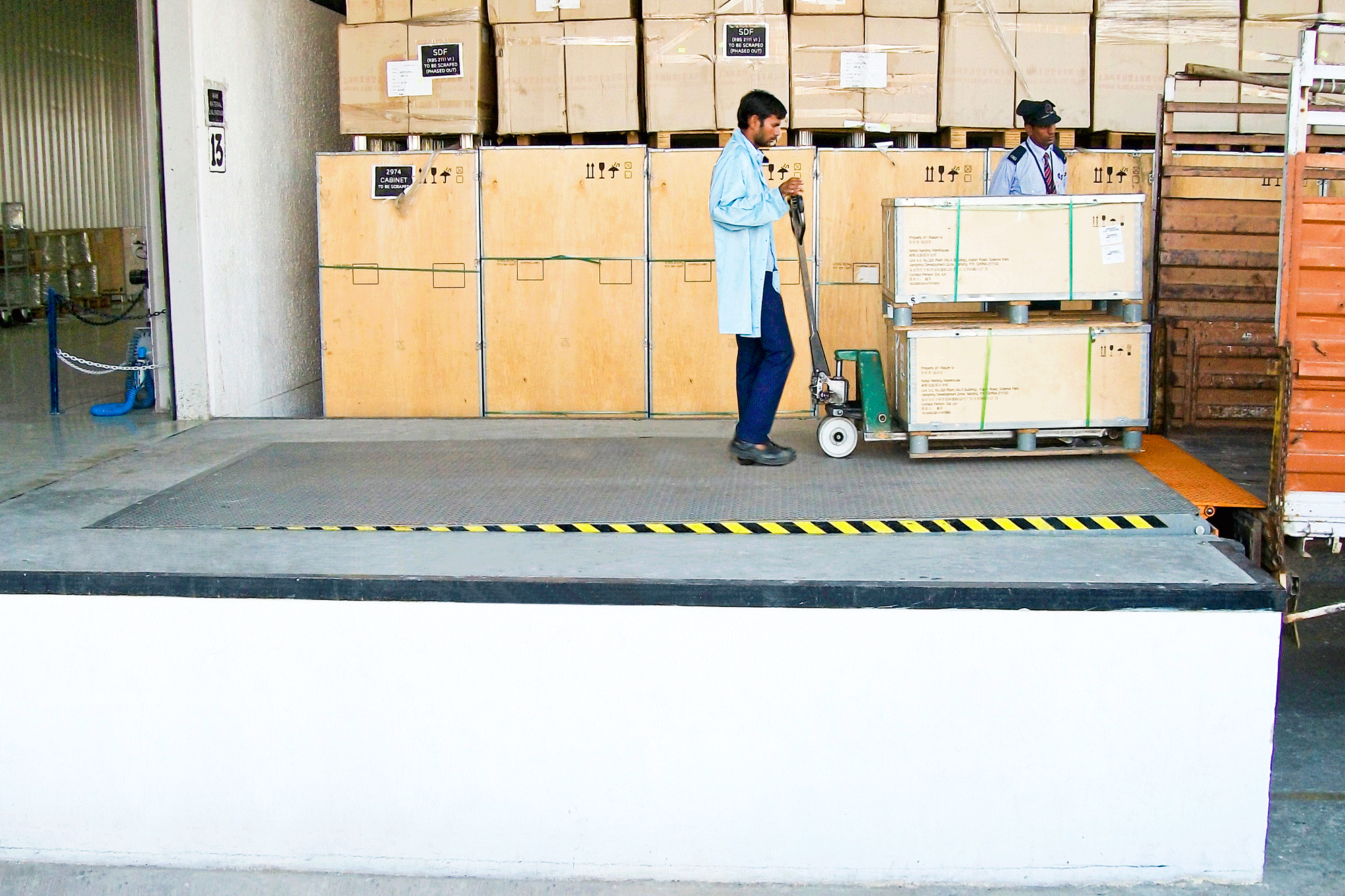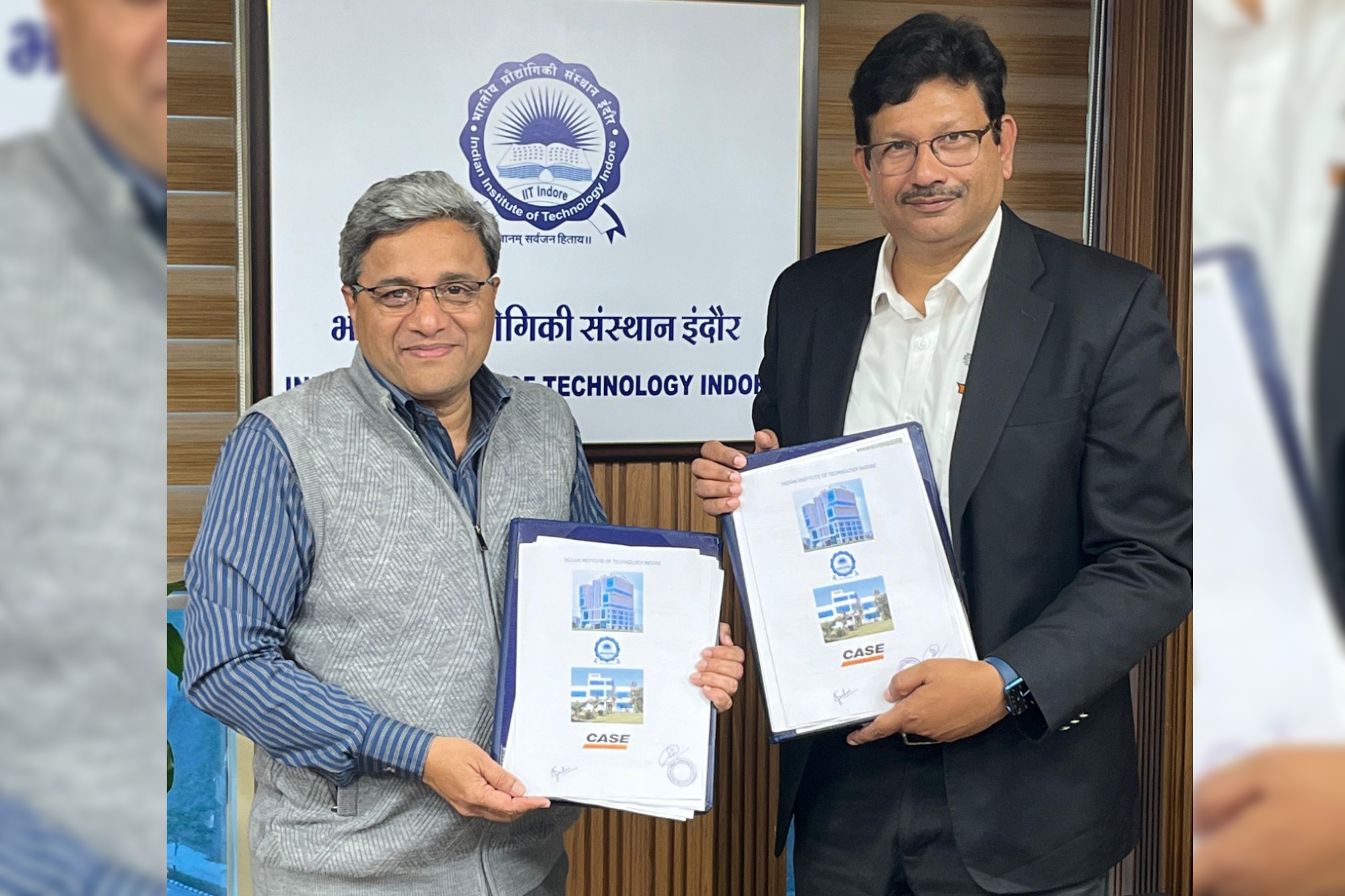Loading Bay – The heart and soul of a warehouse, which is unfortunately, most overlooked
By Edit Team | December 2, 2019 6:39 am SHARE

The importance of efficiently loading goods has always been evident. It has only increased with the years. Higher cost of skilled manpower consequently causes the necessity of hiring less qualified personnel. The cost of the goods is made up by the costs of raw materials’ production, storage, loading and shipment to the destination. With the introduction of better performing, precise and safe production machineries, a major chunk of the cost is passed over from the production to the storage and the loading process. The cost of loading the goods is a precise, inevitable phase, exactly definable that allows a scientific approach to problems and therefore, being able to arrive at solutions which may be quantified as Return on Investments.
Efficiently loading and unloading of goods.
For efficiently loading and unloading of goods at the loading bay the basic equipment comprises Dock Levelers, Sectional Overhead Doors and Dock Shelters. They appear to be independent equipment, but installation of any one without the other may not result in a complete solution at the loading bay. All three equipment are unbelievably interdependent. However, the choice of either one of the three depends on many factors. For example, the type of goods, the weight, volume, quantity, dimension of the courtyard, the frequency of goods movement, the type of vehicles and the temperature to be maintained within the facility.
The Loading Bays: How to equip them?
With the approach mentioned above the motivation to reach the objective of cost reduction are the following:
Operators at the loading bay:
- Safeguards the operators from the risk of accidents.
- Grants to the operator better environmental conditions, lowering their absences due to illnesses and increasing their productivity
- Loading and unloading with the lesser possible effort.
Material at the bay:
- To avoid material damages to the goods
- To avoid breaking the frozen food cold chain
- To protect goods from diverse weather conditions
Ecology and energy savings:
- To avoid heating waste
- To reduce heating and/ or air-conditioning costs
Maintaining the quality:
- To grant a constant quality of the goods during loading and until their arrival at the consumer
Vehicles:
- To facilitate the vehicles approach operations
- To fill in the available spaces on the vehicles
- To load and unload as quickly as possible, minimizing the waiting time of the vehicles
Speeding up the operations:
- Remote controlling of the loading bay state
- Remote addressing of the vehicles to the assigned bay
- Remote calling of the driver when the load is finished
Equipping also when it seems impossible:
- Disposing of adequate equipment also in the warehouses without docks, at ground level
- Disposing of equipment when it seems that the space of docking the vehicles lacks
- Properly equipping the dock for loading light commercial vehicles
Choosing equipment which allows the maximum building integration:
- That conforms to the necessity of the modern prefabrication
- That may be installed only at the end of the building works
- That preserves the integrity of the building parts
To choose the equipment that allows maximum electrical integration:
- By drastically reducing the number of the electrical feeding descents
- By reducing to the minimum the total engaged power
To choose equipment with adequate materials and finishing:
- Painted with two components catalysed anti-rust and with two oven-dried components catalysed end-finished enamel, previously ecologically degreased at 100 C degrees, double phosphate, for destination on common environments
- Hot dip galvanized for very humid, salted or aggressive environments
- Stainless steel where fish, meat, milk is treated
- Anti-burst where needed
Choosing the adequate equipment:
For the type of activity and for the necessary carrying capacities
- That does not require maintenance
- That conforms to the existing regulations
- That is CE certified
Each one of the above mentioned points has to be duly evaluated and each one must find the precise reply within the adopted decision.
The “Deep Cold Loading Bays”: This system includes a Telescopic Dock Leveler with a lip of one metre that remains – in rest position – closed by a Sectional Door that descends to cover the front of the whole Leveler.
The Sectional Door, that for the deep cold is 80 mm thick, has a trapeze and reduced-width bottom panel that enters and seals the inside of the pit, against special insulating parts. A horizontal insulating panel under the leveler pit insulates the tail-lift room (when existing).
The best is obtained by the option “automatic return to rest position” of the Dock Leveler. In case of deep cold, the insulation can be increased by the use of Inflatable Dock Shelters, reaching the top of the energy saving. For avoiding collisions to the rigid insulated panels of the Inflatable Dock
Shelters, Vehicle Wheel Guides are used. Also Dock-Houses can be supplied with the “Recessed Loading Bay” system, for “fresh” and “deep cold”.
How to load in order to save
It is possible to load and unload your products in a safe way and in the process obtain remarkable energy savings. The loading bay remains with the Dock Leveler in rest position and the Sectional Overhead Door closed, until the vehicle is positioned. The driver drives back centering to the Dock Shelter and stops the vehicle the moment it gets in contact with the bumpers.
The Sectional Overhead Door is then opened only when the vehicle is positioned, brakes applied and engines shut off.This eliminates the exit of hot air, intake of cold air (or the opposite in hot and inside conditioned places) and intake of exhausting gases in the warehouse. After the Sectional Overhead Door opens, the lip of the Dock Leveler connects to the truck bed for loading / unloading to take place.
At the end of the loading/unloading the Dock Leveler is put in the rest position and the Sectional Overhead Door is closed, without moving the vehicle. The vehicle then departs at the end of the process.
How much time elapses between the arriving of the vehicle and the beginning of the loading is the big question that must be solved.
The shorter it is, the greater is the saving and consequently has a bearing on the material cost.
Gandhi Automations manufactures loading bay solutions like dock levelers, dock shelters, sectional overhead doors. Dock equipment’s are designed and factory-made in state of the art manufacturing facility. Our dock equipment meet international safety standards like EN1398 for dock levelers and product is CE marked.
For more details contact
Samir Gandhi
(Director – Gandhi Automations Pvt Ltd)
www.geapl.co.in
Cookie Consent
We use cookies to personalize your experience. By continuing to visit this website you agree to our Terms & Conditions, Privacy Policy and Cookie Policy.




































-20240213125207.png)

























